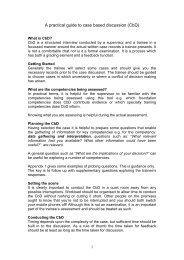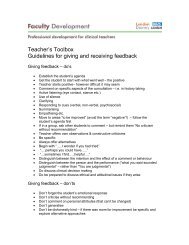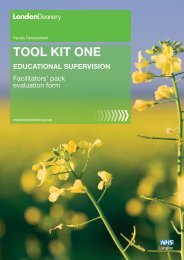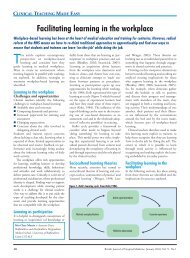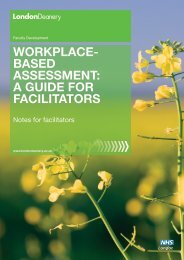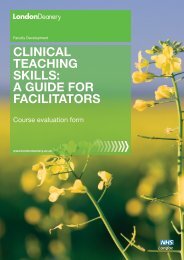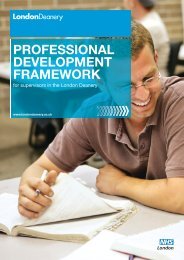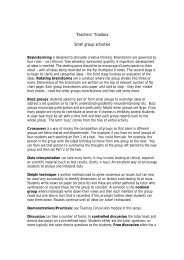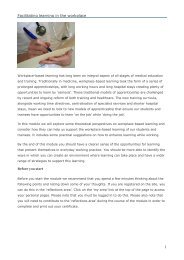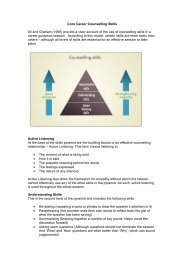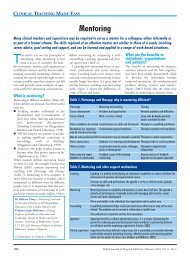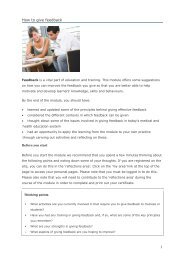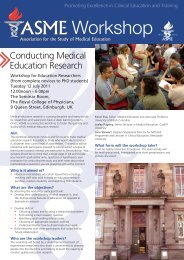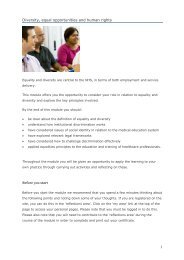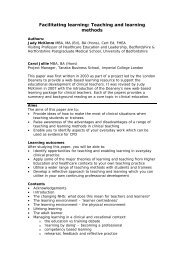Curriculum development module - Faculty Development - London ...
Curriculum development module - Faculty Development - London ...
Curriculum development module - Faculty Development - London ...
Create successful ePaper yourself
Turn your PDF publications into a flip-book with our unique Google optimized e-Paper software.
It is to these questions that medical educators should constantly and consistently<br />
turn”.<br />
Learning activities and reflection<br />
Think about a course in which you are involved as a teacher.<br />
How has this course been developed – according to the objectives or the process<br />
model?<br />
What do you think are then main advantages and disadvantages of each?<br />
Models of curriculum <strong>development</strong><br />
In medical and healthcare education and training, the learners are required to<br />
acquire a complex mix of knowledge, skills and attitudes; they are expected to be<br />
able to synthesise and apply their learning to new and often demanding<br />
situations, they are also expected to be lifelong learners, acquiring and utilising<br />
skills and attitudes such as study skills and self-motivation throughout their<br />
working lives. In addition, learners are working in a constantly changing<br />
environment and because they work with people (including patients, colleagues<br />
and carers) they are constantly having to adapt their knowledge to meet<br />
expectations from a range of people.<br />
When we think about designing a course, as well as thinking about the needs of<br />
the learners and theories of learning, we also need to think about how the overall<br />
design of the programme (timetabling and sequencing, teaching and learning<br />
methods) will enable students or trainees to acquire the defined knowledge, skills<br />
and attitudes. Whichever design we choose, there always has to be a sequence of<br />
learning, students need to acquire certain information or skills before they can<br />
move onto understand or apply others. During a learning process, there is always<br />
a shift from the more simple ‘building blocks’ to understanding complex principles,<br />
a shift from ‘novice’ to ‘expert’. This is often defined as a spiral curriculum, one<br />
in which learning is seen as a developing process with active reinforcement and<br />
assessment at key stages coupled with the acquisition of new knowledge and<br />
skills. As curriculum planners, we need to facilitate this process for our students<br />
and ensure that students are ready to move onto the next stage of learning.<br />
Assessment of some sort is usually used to determine readiness to move from one<br />
stage to another.



